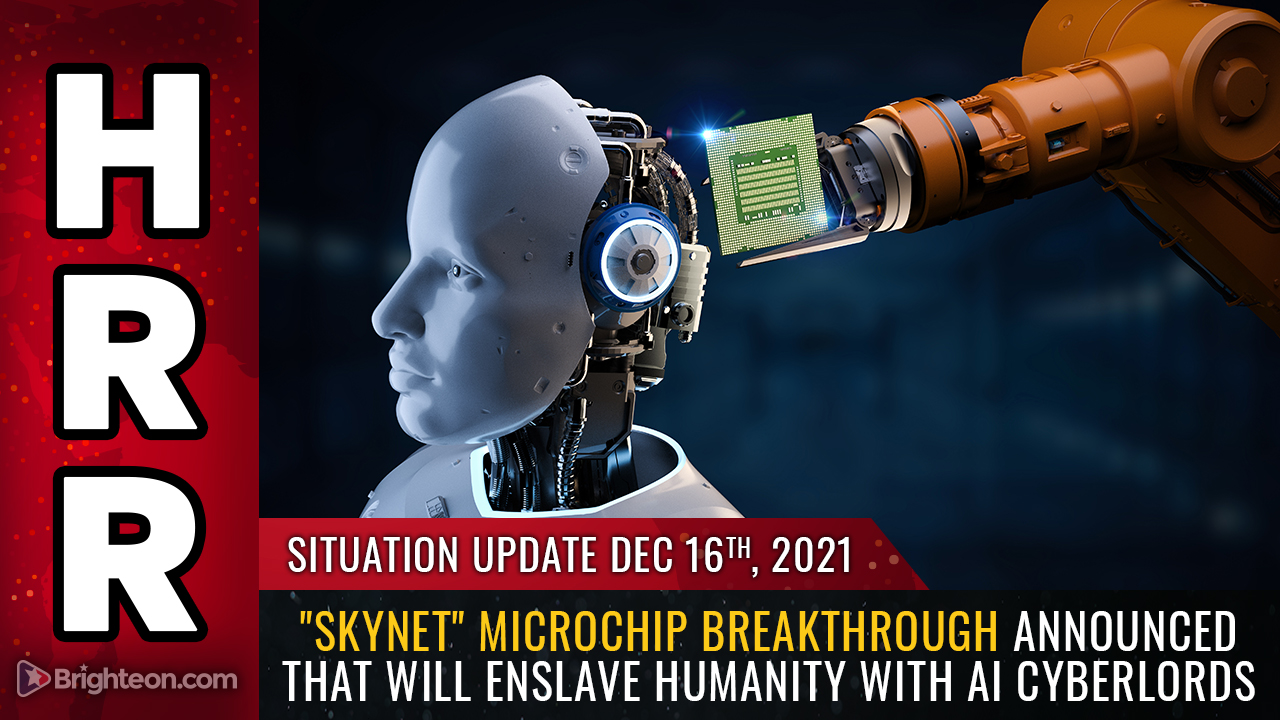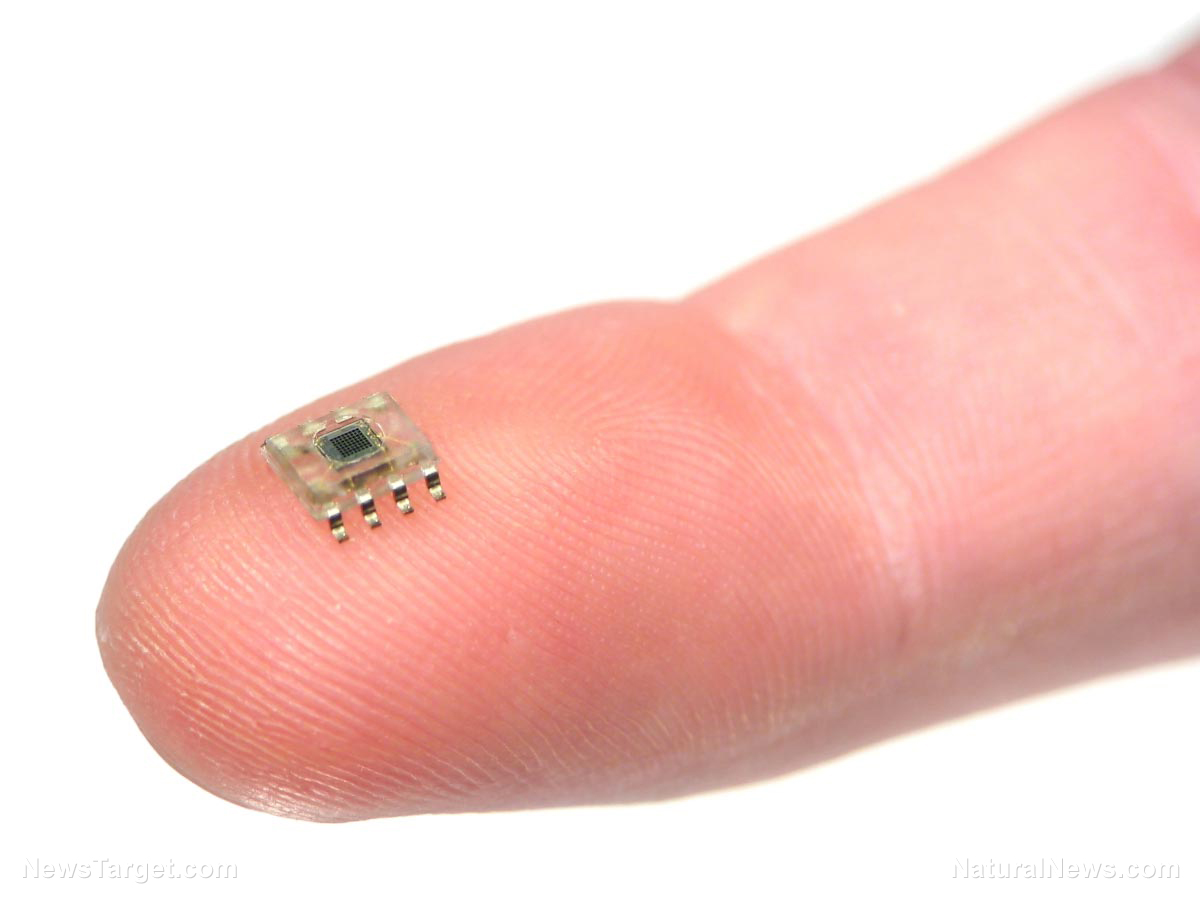Ethical questions raised after Elon Musk’s Neuralink company implants chip in monkey’s brain
05/03/2021 / By Arsenio Toledo

Scientists and ethicists have questioned the ethical implications of human and cyborg hybridization experiments after a recent demonstration involving a monkey with a brain chip controlling a video game with its mind.
On April 8, Elon Musk’s neurotechnology start-up Neuralink announced that it had successfully created a cyborg monkey that can play Pong with its mind using a brain chip.
Neuralink’s scientists trained Pager, a nine-year-old macaque, to play Pong and to solve other similar puzzles on a computer screen using a joystick. Every time Pager did correct moves, a metal tube right next to him squirted a banana smoothie into his mouth.
While Pager was doing this, he was hooked up to two Neuralink chips implanted in his skull. More than 2,000 wires in his brain were monitoring his motor cortex and his other neurological responses as he wiggled the joystick and received his rewards.
Once the scientists successfully linked Pager’s neural activity with his actions onscreen, the researchers unplugged the joystick. To their astonishment, the cursor kept moving. Pager was playing Pong with nothing but his brain waves.
“A monkey is literally playing a video game telepathically using a brain chip!” Musk tweeted excitedly when news of the breakthrough was announced. (Related: Scientists develop artificial muscles powered by glucose: Findings will be used to develop a system that’s “even closer to a biological muscle.”)
Neurotechnology still in its infancy, but scientists and ethicists are already concerned
Musk and his fans have cheered on the development with Pager. Scientists and tech ethicists alike have recognized the progress achieved by Neuralink, but have also expressed their own doubts and criticisms.
Anna Wexler, an assistant professor of medical ethics and health policy at the University of Pennsylvania, agrees that Neuralink’s work with Pager is a sign of progress in the field of neurotechnology, “particularly in terms of the wireless system and number of electrodes that seem to have been successfully implanted.”
“What concerns me in the near-term are the potentially false claims,” continued Wexler. “Neuralink’s employees are scientists and engineers working on developing what appears to be a legitimate device for medical purposes. Yet, the company’s co-founder [Musk] is fond of making grandiose and bombastic claims about the potential for that same technology to cure all diseases and allow humans to merge with AI.”
Musk claims that one day in the near future, Neuralink will be able to implant brain chips that could help people with neurological disorders “take control of their lives.” He believes it might even be possible for these chips to merge human cognition with artificial intelligence to create a sort of “superbeing.”
While Wexler believes neurotechnology is years away from achieving anything coming close to this, that hasn’t stopped Musk from bragging about the nascent technology to his fans on social media.
Cognitive psychologist and philosopher Susan Schneider wrote that this world Musk envisions where the human brain has merged with computers would be “suicide for the mind.”
Schneider is excited about the potential future applications of brain chips for individuals with neurological problems, such as movement and memory loss. But she is worried about the potential widespread availability of these chips.
“Without proper regulations, your innermost thoughts and biometric data could be sold to the highest bidder,” said Schneider. “People may feel compelled to use brain chips to stay employed in a future in which AI outmodes us in the workplace.”
Journalist Manik Berry, writing for tech news outlet Fossbytes, asked, “Where does it stop?”
Berry is primarily concerned with the many ethical concerns the Neuralink raises, such as what happens if a person’s brain chip is hacked, leaving him or her crippled as a result, or what happens if the government decides to take control of somebody’s brain chip and download that person’s memories.
Furthermore, Berry asked what would happen if corporations decide to use Neuralink to make a profit, such as by blasting advertisements in people’s brains and forcing them to pay so they don’t have to hear it.
“What’s to stop people from abusing a chip planted in their heads?” asked Berry. “Parents might want ‘the Link’ in their children to raise the ideal kids. Teens may want it to get high on demand, and everyone else might find ways to abuse it one way or another.”
“It is a wonderful piece of technology, but these Neuralink-related ethical questions remain unanswered… They need to be answered before we make advance bookings for Neuralink implant installation.”
Read the latest news regarding Elon Musk and his companies at ElonMuskWatch.news.
Sources include:
Tagged Under: artificial intelligence, brain implants, brain research, brain waves, breakthrough, cyborg, Elon Musk, ethics, future tech, inventions, Neuralink, neurology, neurotechnology, robotics, technology
RECENT NEWS & ARTICLES
COPYRIGHT © 2017 INFORMATIONTECHNOLOGY.NEWS




















